Getting Heavier: An Interview with Periphery’s Adam “Nolly” Getgood
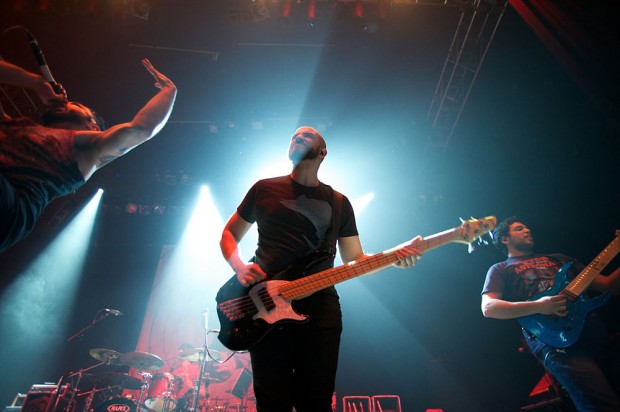
Last month we shared a bass cam video of Periphery bassist Adam “Nolly” Getgood performing “Make Total Destroy” live at Manchester Academy. The clip was a hit with our readers, who especially took note of Getgood’s ridiculously awesome tone.
Getgood got his musical start on piano before turning his attention to guitar, where years of practice paid off in immense talent. In June he left his guitar position in Red Seas Fire to join the ranks of Periphery as their full-time bassist. Though Getgood defines himself as a multi-instrumentalist, his time on bass has proven to be an inspiration to both he and his fans. His bone-crushing low end can be heard on the band’s latest release, Periphery II: This Time It’s Personal, which he also co-produced.
We had a nice conversation with the bassist, where he got into detail about his tone, music production, his aspirations for metal bass players, and the future of Periphery.
How did you get into bass? Was it through Periphery?
Yeah, actually it pretty much was. The first time I played with Periphery was in 2009. I’ve been a friend of the band for quite some time, specifically with Misha [who is] the main guitarist and the main song writer, at least for the first album. Their current bassist at the time – Tom [Murphy] – had gotten married and was going on his honeymoon around Europe just before the band’s first major tour, which was the Thrash and Burn Tour in summer of 2009.
So they just asked. I hadn’t really played bass properly before. They knew I knew the songs though, so they asked if I could learn them on bass to fill in for Tom while he wasn’t in the band. That was really it. I got on stage for the first date of that tour having never even really played through a bass rig before. [laughs] I didn’t really know what I was doing at all. I had a moment of panic before I went on, not even knowing if I had what I needed to play, you know?
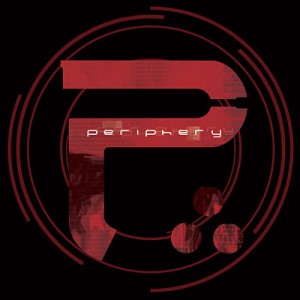 But I really enjoyed it. I really got into it on that tour. I found straightaway that, for me, playing guitar live is quite stressful. It’s a very delicate little thing, and I quite like to rock out on stage. I always feel like I have to hold back when I’m playing guitar. Either that or my performance is going to suffer and out front it’s just going to sound like a mess. I’ve found that bass is so much meatier; something you can really dig into. At least within Periphery, I still get to play pretty much exactly what they do. A lot of the riffs they play are very single note based. As soon as they start playing chords, which does happen a lot too and obviously I’m moving root notes or whatever, it’s the chords that are really the boring part when you’re playing guitar. That’s the bit where you have to be real careful and make sure you’ve got your fingers just down in the right place. On bass you can just rock out to that. Especially playing Periphery stuff, I really get to spread my wings technique-wise as well. So it’s a really cool trade-off and I’m really happy to be doing it. I’ve never played bass with any other band. I record bass on my own music and recorded all the bass on the new Periphery album, but that’s pretty much the extent of my bass playing.
But I really enjoyed it. I really got into it on that tour. I found straightaway that, for me, playing guitar live is quite stressful. It’s a very delicate little thing, and I quite like to rock out on stage. I always feel like I have to hold back when I’m playing guitar. Either that or my performance is going to suffer and out front it’s just going to sound like a mess. I’ve found that bass is so much meatier; something you can really dig into. At least within Periphery, I still get to play pretty much exactly what they do. A lot of the riffs they play are very single note based. As soon as they start playing chords, which does happen a lot too and obviously I’m moving root notes or whatever, it’s the chords that are really the boring part when you’re playing guitar. That’s the bit where you have to be real careful and make sure you’ve got your fingers just down in the right place. On bass you can just rock out to that. Especially playing Periphery stuff, I really get to spread my wings technique-wise as well. So it’s a really cool trade-off and I’m really happy to be doing it. I’ve never played bass with any other band. I record bass on my own music and recorded all the bass on the new Periphery album, but that’s pretty much the extent of my bass playing.
It’s obviously transferred over well. How do you think you guitar playing affects your bass playing and approach to the instrument?
I think certainly the left hand is something which they both have in common. I spent many years practicing hard on guitar, so thankfully that’s something I haven’t had to learn from scratch. I think it’s been really interesting to relearn. You know, making an instrument sound good is very different from just learning to play it. There’s an art, and the amazing bassists and amazing guitarists are the ones who can play something simple and make it sound good. That’s something I’ve always focused on with all the music I’ve played on. I was a piano player before that and that was something I was obsessed with back then as well.
That was something that I really needed to sit down and listen to with the bassists in contemporary bands that are doing a similar thing to Periphery, but also [I had to] go back and listen to the great bassists and try to analyze it from a bassist’s perspective. I’d say that the most tricky thing was getting into the right mindset and not just being a guitarist playing bass. Having done a lot of touring and spoken to the other bands, a lot of times that’s what the bassists are in these metal bands, at least. They wanted to play guitar and [the band] said, “Can you play bass?” And so they said, “Oh, alright then.” I didn’t want to be one of those guys.
I’m trying very hard to play fingerstyle. I got [Cannibal Corpse bassist] Alex Webster’s instructional book, which I’m working through painstakingly. It definitely reminds me of starting to play guitar and have to deal with all these strange coordination things that I haven’t had to do before. I’m getting there. I’ve got my two finger technique fairly well down.
When we shared the bass cam video for for “Make Total Destroy”, many readers responded that they really love your tone.
That’s been really cool. That’s something which I’ve kind of worked on by myself and had no idea whether it was the kind of thing that true bassists would really like. I was just going off what sounded good to me.
So what were you using in that video, and what’s your rig?
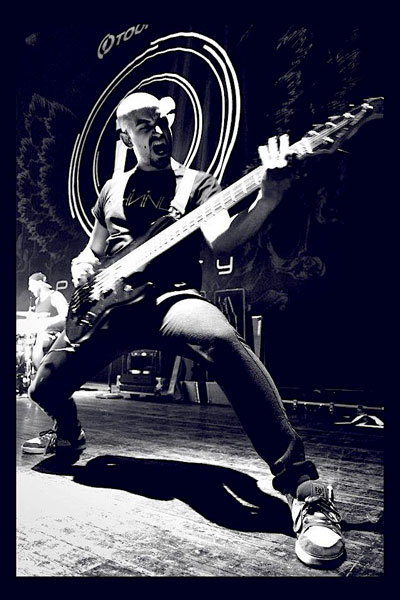 So my rig is basically one unit, with the ghost of another unit in it. [laughs] I’ll explain what I mean. I worked closely with the excellent Doug Castro from a company called Darkglass Electronics. He makes these amazing distortion pedals called the Darkglass Microtubes B7K, and that’s what I use for my tones. The first time I heard those was on tour with a bassist in a band called Shining. When I played in my old band, we played with Shining and I didn’t know what this guy was using but his tone was phenomenal. I had to go and ask him afterwards what he was using. He was using the smaller pedal called the B3K.
So my rig is basically one unit, with the ghost of another unit in it. [laughs] I’ll explain what I mean. I worked closely with the excellent Doug Castro from a company called Darkglass Electronics. He makes these amazing distortion pedals called the Darkglass Microtubes B7K, and that’s what I use for my tones. The first time I heard those was on tour with a bassist in a band called Shining. When I played in my old band, we played with Shining and I didn’t know what this guy was using but his tone was phenomenal. I had to go and ask him afterwards what he was using. He was using the smaller pedal called the B3K.
We got in touch with Doug before recording Periphery II, the latest album, in order to be able to use one of his pedals on the album. That has been a revelation because the way that it’s setup means that you can high-pass the distortion. One thing is that I tune very low – I have to because the guitarist tune very low. On some songs I’m playing on a low F#, which is nearly an octave lower than normal. Most overdrive pedals just turn into fuzz that point, and you’re not really getting much of the actual fundamental tone. The distortion becomes very muddy and undefined.
With the Darkglass, because it can kind of get rid of that in the distortion part of the sound, you can keep the grind and the attack of the distortion but blend back the original D.I. signal, which gives you the nice, rich, clean fundamental tone as well. Hopefully if that’s done well, it gives you the best of both worlds. You have the clean note and the aggressive distortion and you’re not compromising any of that.
However [when playing] live, I use a unit called the Fractal Audio Axe-Fx II, which is a guitar amp and effects processor. It’s a rack unit, and all of the guitarists in the band use that. I use that, too, and we run it direct. There are no cabs on stage. It has this feature called Tone Matching, where it can basically analyze the signal that you send into it to recreate the EQ curve. So I Tone Matched my favorite settings on the Darkglass, because we don’t have pedal boards. Having a pedal just kind of perched in the back of the rack, the knobs just kept getting knocked. Every night I’d have to listen to my sound and be like, “Wait, does this sound the same? I swear something has changed.” So just for the ease of use for touring and to not have to worry about using the pedal, I Tone Matched it so inside my Axe-Fx is essentially a Darkglass.
So I still say that I use a Darkglass, because that really is the key to that sound, but I use that in conjunction with the Axe-Fx’s Ampeg SVT amp model. It kind of splits into two, I guess it’s clean and dirty separated and then they recombine and go out to the front. So the audio in the video is the live tone that I use.
It’s unfair not to mention the basses as well! So, speaking of low tunings, something which I’ve always run into issues with is getting the low strings to really sound good. For one thing, getting gauges of strings thick enough to be able run those tunings. Firstly, I use Dingwall basses. I use their cheapest model, which is called the Combustion, but that actually suits me just fine. It’s stripped down, I don’t have to worry about it. I love their exotic looking basses and they’re some of the most amazing things I’ve ever seen, but thrashing one of those things live would scare the hell out of me. [laughs] These are very simple with a really, really stable neck. I’ve taken them everywhere from the Philippines to Sweden, which are about opposite climates, and I’ve never once had to adjust the neck or anything like that. As far as being a touring instrument it’s great.
But the real thing is it has fanned frets, which allow you to have a 37” scale, which is three inches longer than a long scale bass. That has done wonders for the low end clarity of the sound. It sounds kind of like a grand piano or something. That’s definitely a huge part of the sound.
I use Circle K strings, who make custom gauge strings. They make something up to a .260. I use a .160 for the tuning that I’m using on the bottom end. They also need to be very long. Regular scale strings like D’Addarios tend to actually not be long enough to use on these basses, so it’s Circle K to the rescue. They’re kind of designed to be equal tension as well, even with the fanned frets in the tunings that I use. That end of things is extremely important, and without that I don’t think the tone would be anything like it is.
Did you use the B7K to record Periphery II?
We did. We actually recorded D.I. straight into the computer, then the bass tone was re-amped later all through an early ’70s Ampeg B-15. Taylor, who owns the studio we recorded at, had one set up there. We ran it into a modern SVT 8×10 stack and miked it up. I think there were four mics on there at the end, so there were quite a lot of different things going on there. We’d originally planned to do a distorted and clean tone and blend the two. It ended up though with the Darkglass that we didn’t need to do that. We found some settings we liked and ran the whole album’s worth of bass tracks through there. That worked out pretty well. Not quite the same thing that I use live. I think in the future I’ll probably be using a direct tone from the Axe-Fx to base around the live tone that I use.
What kind of post production and EQing did you use?
I’m sure there was some EQ. The music we make is very dense and also it can be very open and you can have a real big bass tone from time to time, but it can also be incredibly busy, and that’s when the bass tone can just clutter the whole thing up. There was a lot of automation, actually, in terms of EQ on the album. There are certain sections that use slightly different post production just in order to give it some space or to allow it to dominate in the mix. I didn’t mix the album and I actually wasn’t present for the mix, but some of the other guys were, so I’m not entirely sure about that. There would certainly have been some compression added later to kind of even out the dynamics. In metal if the dynamics are too dynamic, sometimes you end up with a bloated low end, sometimes there isn’t. I’m sure a lot of purist bassists are all about preserving dynamics in their bass tone, but actually with what we do, we kind of want the bass to be really up the whole time and never really fall into the background. It also definitely would have been compressed. It would have been compressed on the way in and probably then later in Pro Tools. Much beyond that I’m not too sure. It would have since gone through the Master Chain and stuff like that, which probably had an effect on them.
Of course, you’re really into production. I understand you’re going to be starting production company with Misha?
That’s correct. So I co-produced the new Periphery album. Production is actually my day-to-day job. That’s how I earn most of my income. I produce bands, I mix bands, and I do a lot of remote work where bands just send me tracks they’ve recorded or stuff they recorded in the studio and I mix it and send it back to them. So yeah, production is really my thing, and I guess getting into bass has really been a huge help for that as well because bass is one of the most unappreciated elements of production. It can really be the difference between a mix sounding amazing and a mix sounding really flat, even if you’re not really necessarily that aware of what the bass is doing. That’s been a very cool overlap between the two.
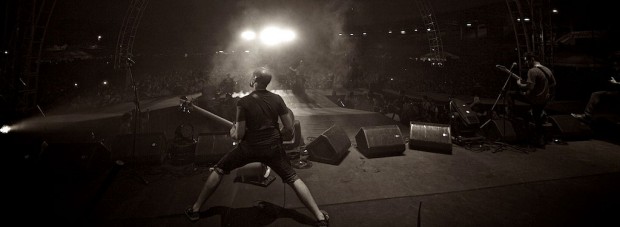
Where do you want to go with bass?
I feel like metal bassists have quite a hard time in the world of bass at the moment. In the guitar world, there’s a lot of products which aim specifically at guitarists. There’s a big community based around that, and something which I’ve become quite aware of that metal bassists don’t have anywhere near that same kind of thing going on. So I’ve been very happy when I’ve found products like the Darkglass pedal that I’ve used that work for metal. I’ve been really trying to push those hard, and at least through social networking and things, I’ve seen there seems to be an increase in interest.
What was very cool is that when the video went up, a lot of guitarists were commenting things like, “Wow, I’ve never really enjoyed watching bass videos so much before,” or something like that. That’s really heartening to see. It mirrors the kind of transition that I went through as a guitarist getting into bass.
Not to get too big-headed, but if possible I’d like to try and open up this world of metal bass and show people that there’s a lot of stuff to do there and it’s actually great fun. It’s not just a background instrument. It’s an aggressive instrument in its own right. You can have real good fun on stage, you can play technical stuff… you can be heard! [laughs] I’m actually working with a couple companies that I worked with on guitar equipment in branching out into bass equipment that would be aimed at the metal player. I’m really looking forward to trying that out and seeing if we could get some traction on that. So I guess what I’d like to do with bass is pretty high-minded, and hopefully it’s not going to be too much of a failure but very much within metal I’d like to see more people taking up bass willingly and really enjoying it as the instrument that it is. It’s great fun to be a bassist on stage and to feel everything shaking around you and to hear yourself cutting through with a real big grinding bass tone. That makes guitar sound puny. It’s like, “Why would you want to play guitar?” [laughs] I want to do something to get people into that. That would be sweet.
One thing that’s going in my favor is that I have a lot of people who are into guitar and production that have been listening to stuff I’ve been doing and respect certain things I say. And I’ve noticed as I said before that there seems to be more and more people commenting about the bass even if they aren’t bassists themselves. Hopefully there’s a bit of a captive audience there I can preach to and brainwash into thinking bass is good [laughs].
I’d really like to become a “real” bass player as well: learn to play fingerstyle, learn to appreciate the role a bass plays in other music as well. It’s always been interesting to me as someone who can read music, for example, it seems that bassists are very into improvisation and walking bass lines. I’d love to stretch myself in those areas as well and really get into that. Obviously with Periphery there’s a limit to how much I can do with that, because most of the time we’re just going to play some pounding riffs, you know? [laughs] I can’t just be knocking out my ii-V-I’s in the background.
So will you be touring the States soon?
I will be coming to the States and staying there all the way through to February from mid-December. I’m working with the band and writing new material, and then we’re off to Australia to play the Soundwave Festival. Then we have various opportunities for U.S. tours over the summer next year. It’s a bit of a down time period at the moment. There’s still things happening behind the scenes, but next year should be a busy touring year again. That’s the hope anyway. And maybe we’ll do more headstock footage [laughs].
Awesome. So what else is next for you?
Probably production stuff. As you said, Misha and I just set up this production company. We’ve got quite a lot of prospective clients and a couple that seem very close to finalizing bookings to work with us between the end of this year and early next year. So I’m sure I’ll be spending a lot of time in the studio.
Also in the downtime we’ll be writing a lot of material. Periphery has this thing that’s been spoken of since before Periphery was a band even, when it was just Misha making music. He spoke of this concept called The Juggernaut concept, which was going to be a concept album. That’s something that’s been gestating very long-windedly, sometimes being cannibalized. You know, some ideas that were set aside for The Juggernaut ideas have ended up being actual songs.
So it’s still very much up in the air, but we’re writing a concept album, essentially. It’s going to be very much no-holds-barred in the scope of it. We hope there’s going to be stuff that’s heavier than we’ve ever done before, but we also hope there’s going to be stuff that’s purely electronic music, soundscape type stuff, and just generally things that you haven’t heard from Periphery before. It’s very exciting for us, but it’s also very daunting. It’s difficult to just go in and write with a blank page where anything is allowed. It’s like, “Where do you go with this?”
We do what’s called retreats, where we lock ourselves away for two or three days with nothing else on our schedule but writing and see what happens. See if we can inspire each other into something. Generally something comes out of there and it’s always unpredictable, so we’ll see what happens with that. I think we’ll shoot a music video in the near future for one of the tracks off Periphery II, which should be fun.

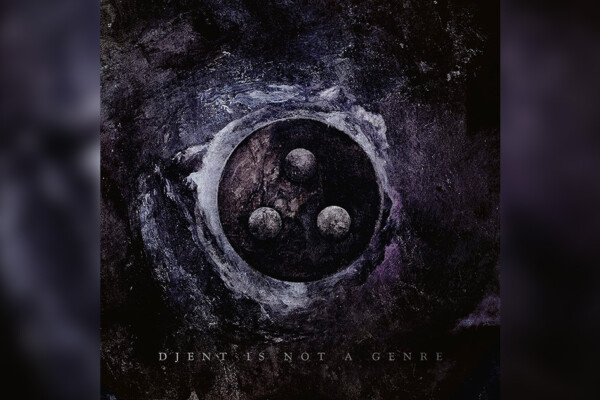
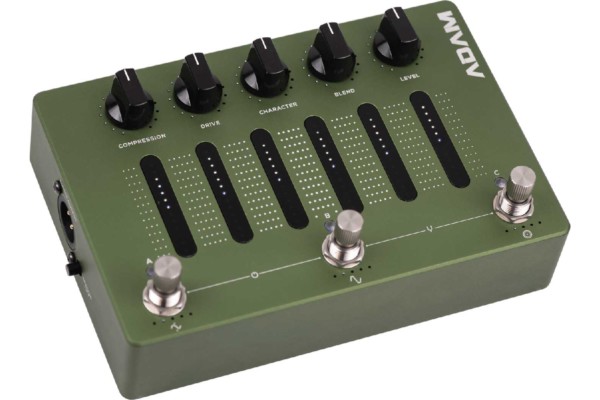
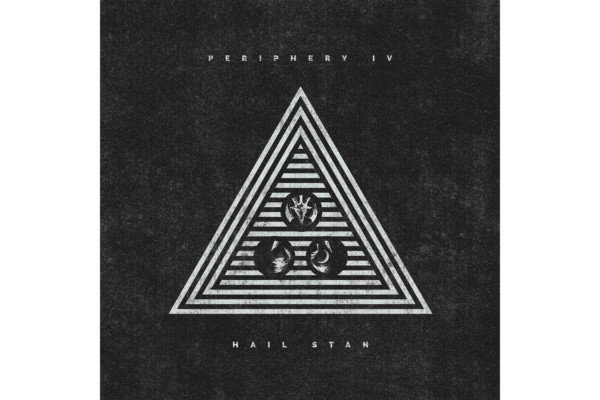
all of my yes! Nolly, Respect!
NOLLY! I was so glad that you jumped in to Periphery! DAT BASS TONE!
nolly+periphery= epic win.
Very cool interview. Nolly seems to have a good head for music, great at that actually.